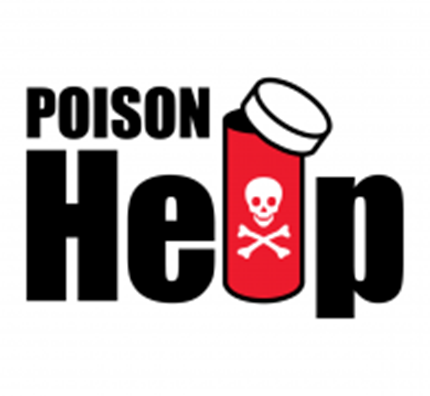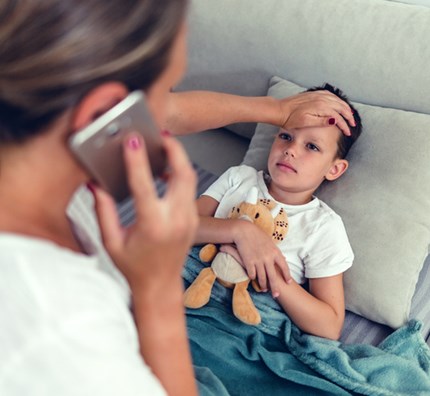When you believe an injury or illness threatens your child’s health or life - or may cause them permanent harm - this is an emergency.
Here are signs your child may need emergency care:
- Strange or unusually withdrawn behavior; less alert than usual
- Unconscious, or unresponsive when you talk with them
- Seizing or jerking
- Trouble breathing, especially when it gets increasingly worse
- Blue, purple, or grayish skin or lips
- Neck stiffness with a fever
- Severe or increasing pain
- A cut that is large or deep, or a cut to the head, chest, or abdomen
- Bleeding that does not stop after pressure has been applied for 5 minutes
- A burn that is large or involves hands, feet, groin, chest, or face
- Any loss of consciousness, headache, vomiting, or confusion after a head injury
These signs may be caused by an illness, allergy, or other condition. They can also be the result of poisoning or a sudden injury such as a fall, car or bike crash, choking, or electric shock, for example.
What should you do?
When responding to an emergency, stay calm. Call 911. Be prepared to give them information about your child, the problem, and your location.
In emergencies, children need medical treatment as soon as possible and an ambulance is the safest way for your child to be transported to the emergency room.
While you wait for help to arrive:
- Don’t move your child unless it’s to get away from immediate danger, such as a fire. Stay with the child until help arrives.
- If a child is not breathing or doesn’t have a heartbeat and you know how, perform CPR or give them rescue breaths.
- If your child is bleeding, apply constant pressure with a clean cloth to the place that’s bleeding for at least 5 minutes or until help arrives.
- If your child is having a seizure, place them on the floor with their head and body turned to the side. Do not put anything in their mouth.
- If you have time, bring any medicine your child is taking with you to the hospital.
- If you suspect your child may have swallowed poison or other medicine*, bring it with you or be prepared to tell emergency responders.
After you arrive at the emergency room, make sure to tell staff the name of your child’s doctor. Your pediatrician can work with emergency department doctors and nurses and provide them with more information about your child.

Call the Poison Control helpline if you think your child has swallowed a suspected poison or another person’s medicine, or a button, battery, or magnet—even if your child shows no signs or symptoms.
-
Numbers to get now
In addition to calling 911 for emergency response, you can use these numbers to call for help or advice:
- Your child’s pediatrician
- A nurse or hospital help line, where you can describe your child’s symptoms and get advice on what to do if you’re not sure.
- Poison Control; Poison HELP at 1-800-222-1222
Other ways to be prepared
- Have a list of emergency numbers to share with your child’s caregivers, including babysitters, relatives, and family friends.
- Keep an updated list of any medicines your child is taking on your phone or in a small notebook.
- Talk to your family and children about emergency situations and what should be done.
- Think about potential situations that could affect your family and have a plan: Always monitor your children around family pets and swimming pools, identify an agreed upon “safe zone” outside of the house if there is a fire.
- Understand the difference between urgent care and emergency care. Urgent care can treat minor illness and injury, but you’ll need the hospital emergency room for serious concerns. Know what services your local urgent care provides and how to get there. You can talk with your child’s pediatrician in advance about what you should do and where you should go in case of an emergency.
- Recognize changes in your child’s health and treat them as needed. Early treatment of symptoms can prevent an illness or injury from becoming an emergency.
- Learn CPR and basic first aid. Contact your child’s doctor or an organization like the American Red Cross to find classes.

Any sign of sickness or injury in a child can make you worry, especially if you’re a first-time parent or caregiver. You don’t want to overreact. But even more critical, you want to be sure your child gets the care they need. Here’s some good news: Not every health-related issue needs emergency action, and it’s likely you’ll only need to reach out to your child’s pediatrician for advice. It’s important, though, to know when a child may need emergency attention and how to respond quickly.
